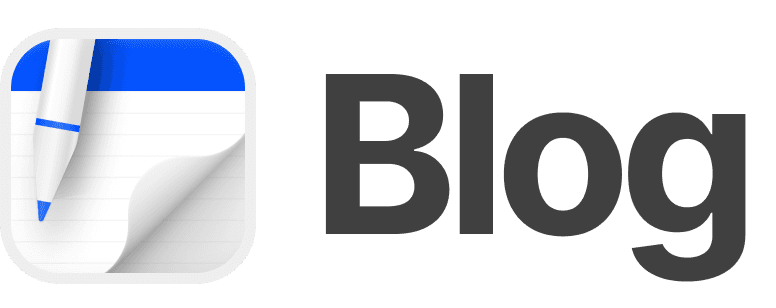Written by
Timon Harz
The Future of Work: How AI is Changing the Way We Work
The world of work is undergoing a significant transformation, driven by the rapid advancement of Artificial Intelligence (AI) technologies. As AI continues to disrupt traditional industries and create new ones, the way we work, collaborate, and innovate is changing forever. In this blog post, we'll explore the future of work, and how AI is shaping the modern workplace.
The Rise of Augmented Intelligence
AI is no longer just a buzzword; it's a reality that's already changing the way we work. From virtual assistants like Siri and Alexa to intelligent chatbots, AI is augmenting human capabilities, freeing us from mundane tasks, and empowering us to focus on higher-value work.
The concept of Augmented Intelligence, coined by Thomas H. Davenport and Kevin G. Grover, refers to the combination of human and machine intelligence to produce better outcomes. As AI takes over routine and repetitive tasks, humans can focus on creative, critical thinking, and high-level problem-solving, leading to increased productivity and innovation.
The Emergence of New Job Roles
As AI assumes responsibilities traditionally held by humans, new job roles are emerging that leverage human creativity, empathy, and expertise. Some of these roles include:
- AI Trainer: responsible for creating, training, and fine-tuning AI models to ensure they align with business objectives.
- AI Ethicist: focuses on ensuring AI systems are fair, transparent, and unbiased, addressing potential social and moral implications.
- Human-Centered Designer: creates user experiences that complement AI-driven solutions, prioritizing human needs and emotions.
Changes in the Traditional Workplace
AI is transforming the traditional workplace in several ways:
- Remote Work: AI-powered tools and virtual collaboration platforms enable remote work, increasing flexibility and work-life balance.
- Flexible Work Schedules: AI-driven scheduling systems optimize work hours, reducing absenteeism and improving productivity.
- Virtual Teams: AI-enhanced collaboration tools facilitate global teamwork, breaking down geographical barriers and fostering innovation.
Upskilling and Reskilling
As AI takes over routine tasks, workers need to acquire new skills to remain relevant. This requires a significant upskilling and reskilling effort, focusing on areas like:
- Data Science: understanding data analytics, visualization, and interpretation to make informed decisions.
- Creative Problem-Solving: developing skills to work with AI tools, identifying areas where human creativity is needed.
- Digital Literacy: staying up-to-date with emerging technologies, such as blockchain, AR/VR, and the Internet of Things (IoT).
Addressing Job Displacement
While AI is creating new job opportunities, it's also displacing certain jobs, particularly those that involve routine, repetitive tasks. To mitigate this impact, policies and programs focused on retraining and upskilling workers are essential.
The Future of Work: A Human-Centric Approach
As we navigate the future of work, it's essential to prioritize human-centered approaches that focus on:
- Emotional Intelligence: developing self-awareness, empathy, and social skills to thrive in an AI-driven world.
- Creativity and Innovation: nurturing human creativity, encouraging experimentation, and embracing failure as a learning opportunity.
- Wellness and Work-Life Balance: prioritizing mental and physical well-being, ensuring workers have time for self-care and personal growth.
Conclusion
The future of work is already here, and AI is shaping the modern workplace in profound ways. While there are challenges to overcome, the benefits of AI, when harnessed correctly, can lead to increased productivity, innovation, and job satisfaction. By embracing the future of work and prioritizing human-centered approaches, we can create a brighter, more equitable future for all.If you're looking for a powerful, student-friendly note-taking app, look no further than Oneboard. Designed to enhance your learning experience, Oneboard offers seamless handwriting and typing capabilities, intuitive organization features, and advanced tools to boost productivity. Whether you're annotating PDFs, organizing class notes, or brainstorming ideas, Oneboard simplifies it all with its user-focused design. Experience the best of digital note-taking and make your study sessions more effective with Oneboard. Download Oneboard on the App Store.
Other posts
The Benefits of Mindful Note-taking for Students
Discover the transformative benefits of mindful note-taking for students in our latest blog post. Learn how this effective technique enhances focus, retention, and understanding, leading to improved academic performance. Explore practical tips and strategies to incorporate mindfulness into your note-taking routine, making studying more engaging and productive. Perfect for students seeking to elevate their learning experience!
How to Use AI to Automate Your Note-taking Tasks
Discover how to streamline your note-taking process with AI! In this blog post, we explore innovative tools and techniques to automate your note-taking tasks, enhance productivity, and improve organization. Learn practical tips on integrating AI into your workflow, making your note-taking smarter and more efficient. Perfect for students, professionals, and anyone looking to save time and boost their efficiency!
The Importance of Reflection in Student Learning: How to Reflect Effectively
Discover the critical role of reflection in student learning and explore effective strategies for implementing reflective practices. This blog post delves into the benefits of reflection, offers practical tips for students, and highlights techniques to enhance learning outcomes. Unlock the potential of reflective thinking to boost academic success and personal growth!
Company
About
Blog
Careers
Press
Legal
Privacy
Terms
Security

